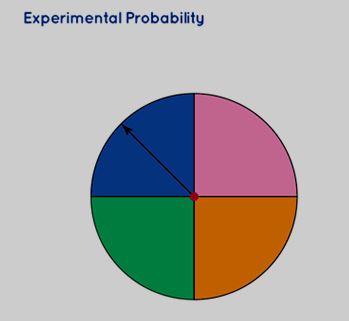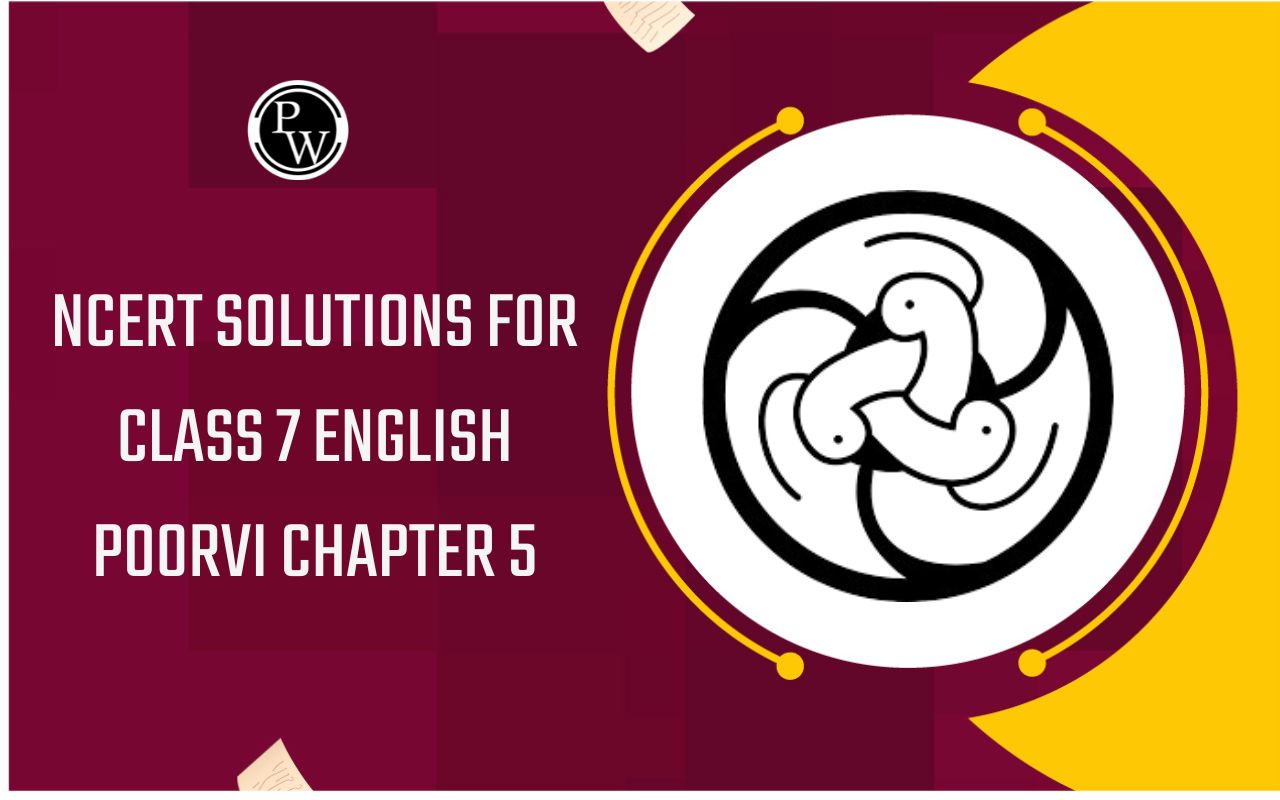
Probability Formula: Probability refers to the measure of the likelihood of an event occurring. In various real-life scenarios, we encounter situations where predicting the outcome of an event becomes essential. Depending on our level of certainty, we might express our anticipation of an event's occurrence. This leads to the concept of probability, which involves assessing the chances of an event taking place or not taking place. Probability finds extensive application in diverse fields, including gaming, business prediction, and even the realm of artificial intelligence.
To calculate the probability of an event, a straightforward probability formula is used. It involves dividing the number of favourable outcomes by the total number of possible outcomes. The resulting probability value ranges between 0 and 1, as the favourable outcomes can't exceed the total outcomes, and negative favourable outcomes aren't possible. The foundational principles of probability are further explored in the subsequent sections.
What is Probability?
Probability can be understood as the proportion of favorable outcomes relative to the total outcomes of an event. In an experiment featuring 'n' possible outcomes, the count of favorable outcomes can be represented as 'x'. The probability formula, which determines the likelihood of an event, is as follows:
Probability of the Event = (Number of Favorable Outcomes) / (Total Number of Outcomes) = x/n
Probability finds application in scenarios such as predicting the results of coin tosses, dice rolls, or drawing cards from a deck. There are two main categories of probability:
- Theoretical Probability
- Experimental Probability
Also Check - Introduction to Graph Formula
Theoretical Probability
Theoretical probability, as its name implies, delves into the theoretical aspect of probability. It provides insights into the likelihood of an event occurring based on mathematical principles and logical reasoning. Theoretical probability presents expectations for what is anticipated to happen in an ideal situation, without the necessity of carrying out any real-world experiments.
The utility of theoretical probability becomes particularly evident in scenarios such as satellite launches, where conducting actual experiments may not be practical or feasible, but a sound understanding of probabilities is crucial for making informed decisions.
Also Check - Logarithm Formula
What is Theoretical Probability?
Theoretical probability is a method within probability theory aimed at determining the probability of a particular event's outcome. Probability theory is a mathematical discipline centered around assessing the likelihood of a random event happening. The probability of an event's occurrence falls within the range of 0 to 1. A probability closer to 0 indicates a lesser likelihood of the event occurring, while a probability closer to 1 signifies a higher likelihood of the event taking place.
Theoretical Probability Example
Consider a scenario with a set of 5 cards, where the task is to ascertain the probability of drawing 2 cards. Employing the principles of theoretical probability, the process involves dividing the count of favorable outcomes (which in this case is 2 cards) by the total number of potential outcomes (5 cards). This computation yields a probability of 0.4.
Theoretical Probability Formula

Theoretical probability can be computed through logical deduction or a straightforward formula. The outcome of this type of probability calculation hinges on the count of possible outcomes. The formula for theoretical probability equates to the ratio of the number of favorable outcomes to the total number of potential outcomes. This formula is expressed as:
Theoretical Probability = Number of Favorable Outcomes / Number of Possible Outcomes.
Experimental Probability
Probability characterizes the likelihood of a specific event taking place. Probability values exist within the range of 0 to 1, signifying that an event can have a probability of 0 if it's impossible, and a probability of 1 if it's certain to occur. The probability that is deduced from the outcomes of an experiment is referred to as experimental probability. This type of probability is also termed empirical probability.
Also Check - Congruence of Triangles Formula
What is Experimental Probability?
Experimental probability is derived from a sequence of experiments. This involves carrying out a random experiment multiple times, with each repetition referred to as a trial. The objective is to ascertain the likelihood of an event occurring or not occurring. This type of probability evaluation encompasses activities such as coin tossing, rolling dice, or spinning a spinner.
Mathematically, the probability of an event equates to the count of times the event happened divided by the total number of trials. For instance, consider flipping a coin 30 times and noting the outcomes. The experimental probability of obtaining a head is determined by dividing the count of recorded heads by the total number of coin tosses. Symbolically, this can be represented as:
P(head) = Number of recorded heads / 30 tosses.
Experimental Probability Formula
Experimental probability arises from counting the occurrences of an event during an experiment and then relating it to the overall number of experiments performed. Every potential result within the experiment is subject to uncertainty, and the collection of all potential results is referred to as the sample space.
The formula for computing experimental probability is:
Number of times an event occurs
Total number of experiments conducted
P(E)= Number of times an event occurs/Total number of times the experiment is conducted
Total number of experiments conducted
Number of times an event occurs
For instance, consider an experiment of spinning a spinner 50 times. The provided table outlines the experiment's outcomes. Let's determine the experimental probability of landing on the colour "blue."

| Colour | Occurrences |
| Pink | 11 |
| Blue | 10 |
| Green | 13 |
| Yellow | 16 |
The experimental probability of spinning the colour blue is calculated as follows: 10 occurrences of blue out of 50 total spins. This fraction simplifies to 1/5, which can be represented as a decimal (0.2) or as a percentage (20%).
Also Check - Coordinate Geometry Formula
Terminology of Probability Theory
In the realm of probability theory, the following terms play a significant role in enhancing our comprehension of probability concepts:
Experiment: A trial or operation carried out to produce an outcome is referred to as an experiment.
Sample Space: The entire collection of potential outcomes resulting from an experiment forms the sample space. For instance, the sample space for flipping a coin consists of {head, tail}.
Favorable Outcome: An outcome that yields the intended or anticipated result is termed a favorable outcome. When rolling two dice, the favorable outcomes resulting in a sum of 4 are (1,3), (2,2), and (3,1).
Trial: A trial signifies the act of performing a random experiment.
Random Experiment: An experiment that features a well-defined set of outcomes is classified as a random experiment. Tossing a coin is a prime example, where the outcome could be either heads or tails, although the specific outcome is uncertain.
Event: An event refers to the total number of outcomes generated by a random experiment.
Equally Likely Events: Events that share identical chances or probabilities of occurrence are referred to as equally likely events. The outcome of one event doesn't influence the outcome of the other. For example, when tossing a coin, the likelihood of getting heads is the same as getting tails.
Exhaustive Events: When the set of all possible outcomes of an event covers the entire sample space, it is considered an exhaustive event.
Mutually Exclusive Events: Events that cannot happen simultaneously are known as mutually exclusive events. For example, weather conditions can either be hot or cold, but they cannot coexist at the same time.
Events in Probability Formula
In the domain of probability theory, an event corresponds to a collection of outcomes from an experiment, often forming a subset of the sample space. If we denote the probability of an event E as P(E), then the following relationships hold:
P(E) = 0 if and only if event E is impossible.
P(E) = 1 if and only if event E is certain.
0 ≤ P(E) ≤ 1.
Let's consider two events, A and B. The probability of event A, denoted as P(A), is greater than the probability of event B, P(B), if and only if event A is more likely to occur than event B.
The sample space (S) encompasses all conceivable outcomes of an experiment, and n(S) denotes the total count of outcomes within the sample space.
For a specific event E, its probability can be computed using the formula:
Here, n(E) signifies the number of outcomes favorable to event E.
Additionally, the complementary event E', representing the event not occurring, has its probability computed essence, it can be deduced that the probabilities of event E and its complementary event E' sum up to 1.
Different Probability Formulas
Probability Formula with Addition Rule:
When dealing with an event that encompasses the union of two separate events, namely A and B, the probability of the union can be calculated using the following formula:
P(A or B) = P(A) + P(B) - P(A∩B)
P(A ∪ B) = P(A) + P(B) - P(A∩B)
Probability Formula with the Complementary Rule:
In scenarios where an event represents the opposite of another event, specifically, if A is an event, then the probability of not A is expressed as:
P(not A) = 1 - P(A) or P(A') = 1 - P(A).
P(A) + P(A′) = 1.
Probability Formula with the Conditional Rule:
When the occurrence of event A is already established, the probability of event B occurring, known as conditional probability, can be determined by the following equation:
P(B ∣ A) = P(A∩B)/P(A)
Probability Formula with the Multiplication Rule:
In instances where an event signifies the overlap of two other events—namely, events A and B—where both events must happen concurrently, the probabilities can be calculated using the formulas:
P(A ∩ B) = P(A) ⋅ P(B) (in case of independent events)
P(A∩B) = P(A) ⋅ P(B ∣ A) (in case of dependent events)
Probability Formula FAQs
Define the term probability.
What is the formula for probability?
Explain the term theoretical probability.
List out the types of probability.










